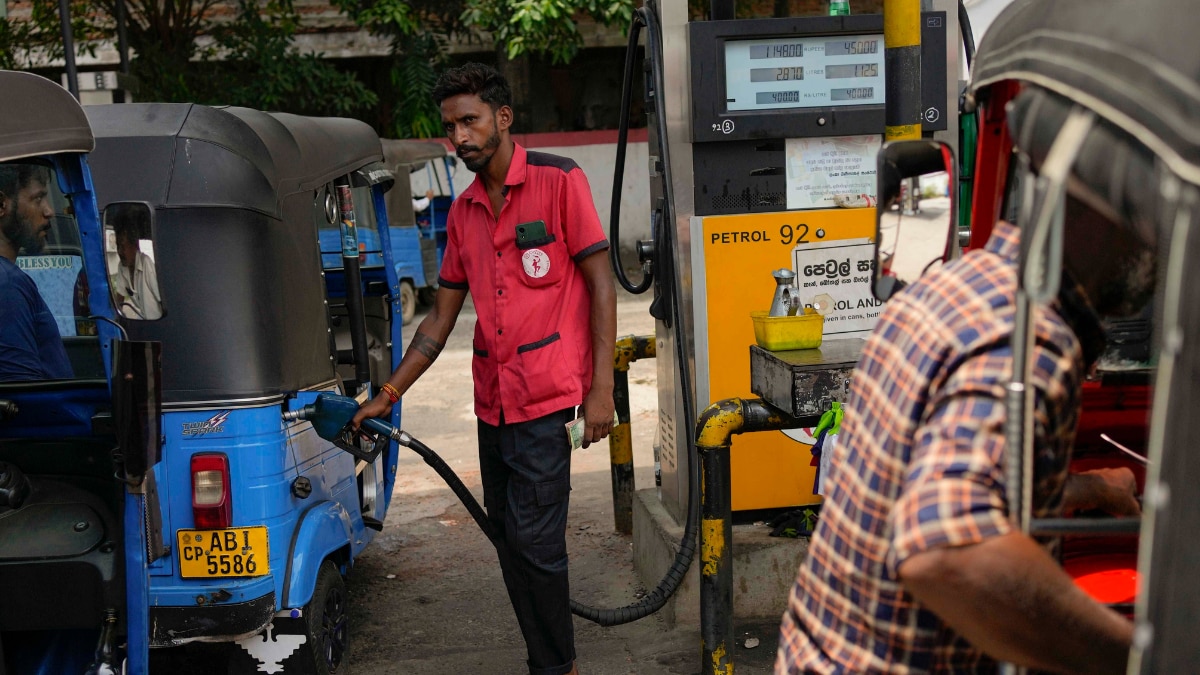Sri Lanka’s Parliament Approves Much-Needed IMF Bailout Package
Last Updated: April 29, 2023, 01:06 IST

FILE- A man fills gas into a vehicle at a fuel station in Colombo, Sri Lanka, March 29, 2023. (AP Photo/Eranga Jayawardena, File)
Last month, the International Monetary Fund (IMF) approved the bailout programme to help Sri Lanka overcome its economic crisis
Sri Lanka’s Parliament on Friday approved the much-needed USD 3 billion IMF bailout package to revive the island’s economy which was hit hard by a catastrophic economic and humanitarian crisis sparked by years of mismanagement and the raging pandemic.
Last month, the International Monetary Fund (IMF) approved the bailout programme to help Sri Lanka overcome its economic crisis and catalyse financial support from other development partners, a move welcomed by Colombo as a “historic milestone” in the critical period.
On Friday, at the end of a 3-day debate, 120 Members of Parliament in the 225-member assembly voted in its favour of the deal while 25 of them opposed it.
President Ranil Wickremesinghe told Parliament that the parliamentary approval was a necessity as his government was embarking on a serious economic reform programme.
Wickremesinghe, also the finance minister, in his Parliamentary address said it was critical for economic recovery to stabilise the economy, restore debt sustainability and build an inclusive and prosperous country.
The main Opposition Samagi Jana Balawegaya (SJB) members who accused the government of lack of transparency in obtaining the facility were not present when the vote was taken in the House.
Having obtained the USD 3 billion facility, Sri Lanka is currently negotiating debt restructuring with bilateral and multilateral creditors.
Wickremesinghe said by mid-May the restructuring programme would come into effect.
Sri Lanka in April declared its first-ever debt default in its history as the worst economic crisis since independence from Britain in 1948 triggered by forex shortages sparked public protests.
Months-long street protests led to the ouster of the then-president Gotabaya Rajapaksa in mid-July. Rajapaksa had started the IMF negotiations after refusing to tap the global lender for support.
Sri Lanka has introduced painful economic measures such as tax hikes and utility rate hikes to unlock the programme. Trade unions and opposition groups have organised protests against such measures.
The programme will allow Sri Lanka to access financing of up to USD 7 billion from the IMF, International Financial Institutions (IFIs), and multilateral organisations, a statement said.
Read all the Latest News here
(This story has not been edited by News18 staff and is published from a syndicated news agency feed)
For all the latest world News Click Here


